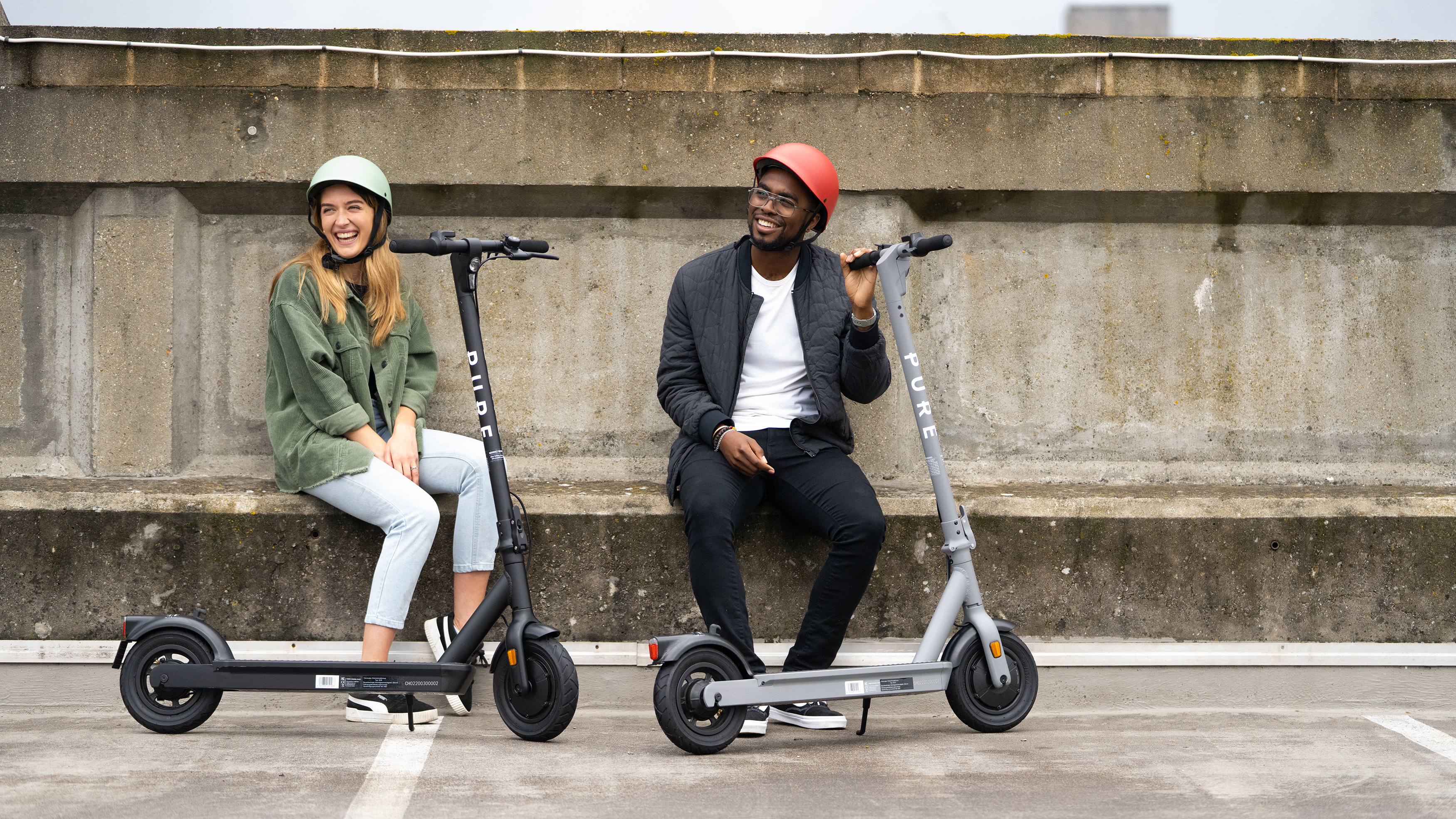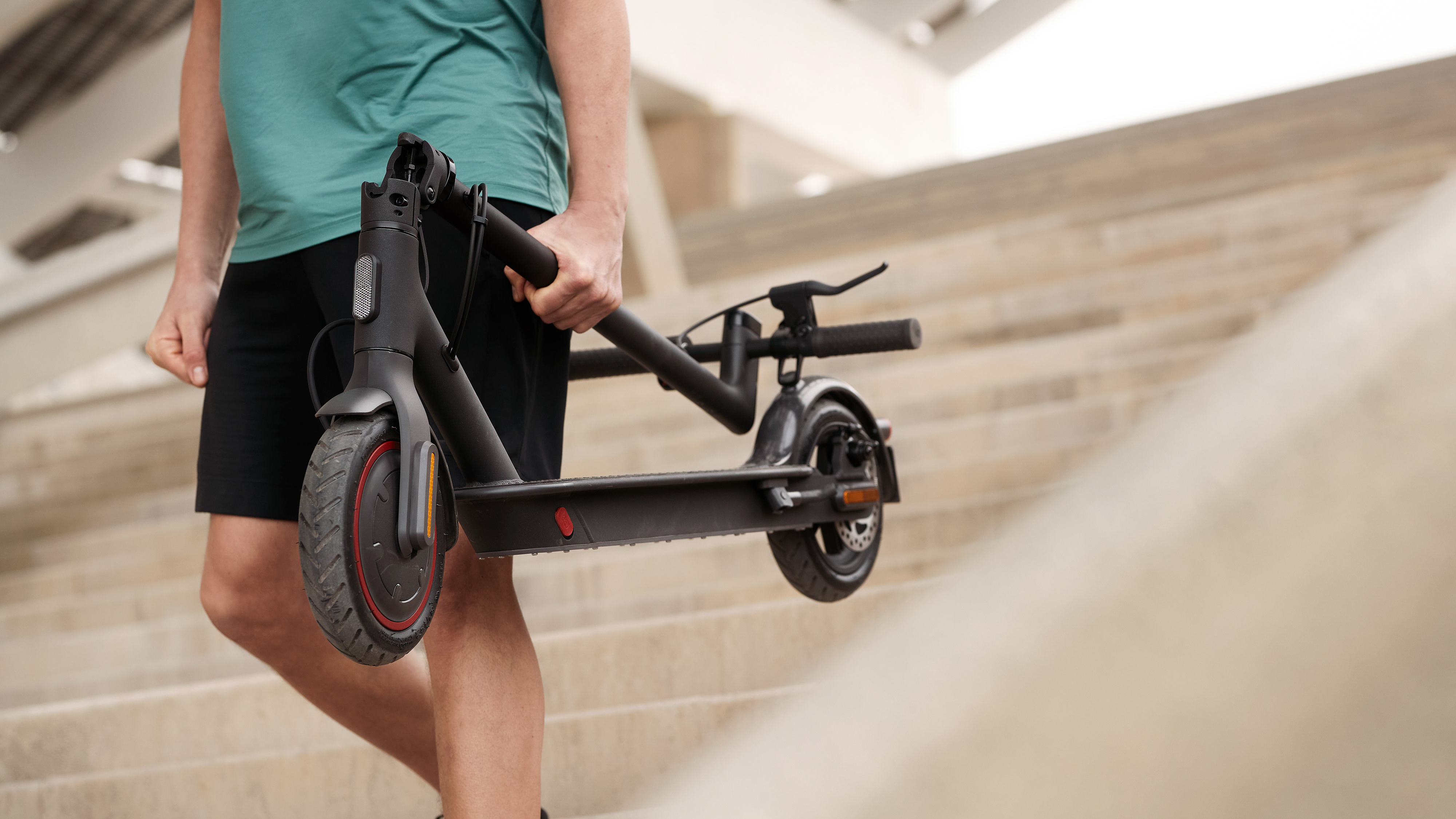6 things you need to know about electric scooters
Are electric scooters legal? How do they work? Everything you need to know about the two-wheeled revolution in urban mobility


Get all the latest news, reviews, deals and buying guides on gorgeous tech, home and active products from the T3 experts
You are now subscribed
Your newsletter sign-up was successful
Two-wheeled electric scooters are all the rage, just check out the massive variety in our best electric scooter guide as proof. Whether it’s because of concerns about emissions or a COVID-19 pandemic-inspired wish to travel alone, thousands of commuters are ditching their cars, and avoiding buses and trains, in favour of electric scooters.
For now, you have to buy your own electric scooter since sharing schemes already popular in Europe have not kicked-off in the UK yet, though it pays to know the law before you make a purchase. Are electric scooters portable? How far do electric scooters go on one charge? Here’s everything you need to know about electric scooters.
1. Electric scooters are legal … just about
You've probably heard a lot of discussion about whether electric scooters are legal or not. The fact is, electric scooters are legal in the UK, but there are many restrictions surrounding them – for now. It is legal to buy an electric scooter, but it is not legal to ride it on a public road, cycle lane or pavement in the UK. Sure, you will see many people riding electric scooters on UK public roads, cycle lanes and pavements, but technically speaking none are doing so legally.
However, it is legal to ride an electric scooter on private land. It's an odd situation, and it makes the UK one of the only countries in Europe where riding an electric scooter in public remains illegal. The government is presently running trials of electric scooters, but at the time of writing if you ride an electric scooter illegally you could face a fine, get penalty points on your licence, and/or the electric scooter could be impounded.

2. Think about power, not speed
If you buy an underpowered electric scooter then you will get massively frustrated by even slight slopes. Despite that, too many prospective scooter buyers think about speed, not power. No-one buys a car according to its top speed, and nor should you care how fast an electric scooter goes.
Much more important than its 15.5 mph/25 kph speed – or thereabout – is its power. The heart of any electric scooter is, of course, its motor, which can range from an output of 250W to 700W. The more powerful the motor, the more easily you’ll be able to tackle things like curbs and bumps, but also slopes.
3. Not all electric scooters are waterproof
Almost all electric scooters claim a ‘splash-proof’ IP54 rating, which is designed to make them ride-able in the rain. However, northern European climates – where it can rain heavily and non-stop for days on end – require something a little more robust.
Get all the latest news, reviews, deals and buying guides on gorgeous tech, home and active products from the T3 experts
Cue the IP65 rating, which is more suitable for riding in heavy rain. Although you will, for now, pay more for an electric scooter with an IP65 rating, it does mean you’ll be able to ride it in the rain and through puddles without any trouble.
For more on this check out our guide to electric scooter maintenance.

4. They’ll save you time … but maybe not money
Electric scooters are all about urban mobility and spending less time commuting, parking and in petrol stations, but they do come with an upfront cost. Although it’s possible to rent them by the hour in many European cities, purchasing an entry-level electric scooter can cost from £100 in the UK (US $150), while a luxe version can go for as much as £2,500 / $3,000. That's before you start looking at the best electric scooter accessories.
As electric scooters get more and more popular we expect the price to drop drastically, but it’s not yet possible to say that buying an electric scooter will save you money compared to either using your own car (if you already own one) or buying a season ticket for public transport in a city.
If you're looking to save money check out the best cheap electric scooter deals.
5. You don’t need to buy your own electric scooter
Electric scooter-sharing schemes are coming to the UK. While bike-sharing schemes are popular in the UK, go to a big city in Europe and you’ll often see electric scooter-sharing schemes.
Once the UK government has completed its electric scooter trials and UK law is adjusted to make them legal to ride on public roads expect multinational electric scooter-sharing operators like Lime, Bird, Tier and Voi to initiate services in the UK’s cities.

6. Not all electric scooters are portable
Can you ride an electric scooter to work, pick it up and carry it up the stairs to an office? Yes, you probably can. Just about. However, don’t expect that to be a sweat-free experience because many electric scooters are very heavy. Many weigh around 15kg. That’s more than 10 laptops!
Sure, some of them do fold down – and you should look for models that do just that – but it remains the case that most electric scooters are too heavy to carry more than very short distances.

Jamie is a freelance journalist, copywriter and author with 20 years' experience. He's written journalism for over 50 publications and websites and, when he's not writing, spending most of his time travelling – putting the latest travel tech through its paces.